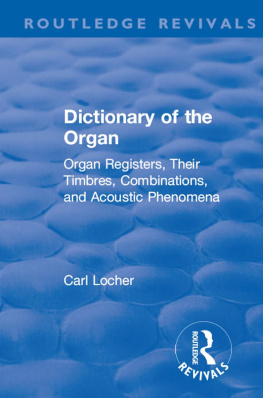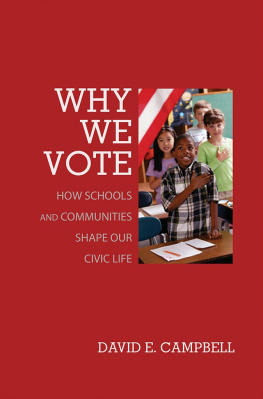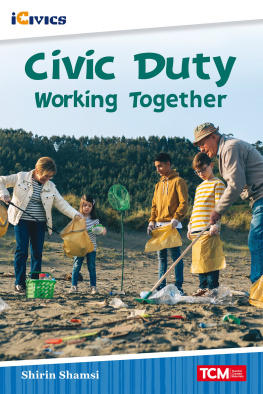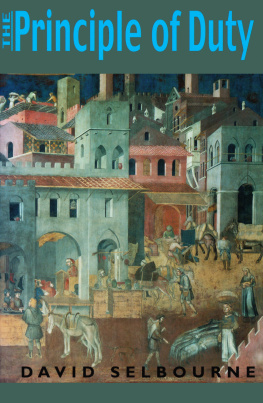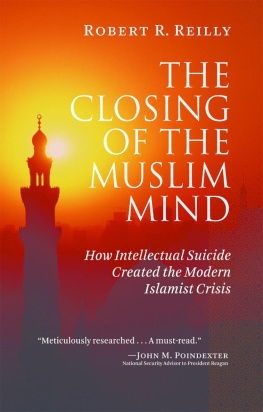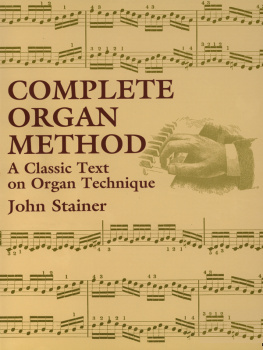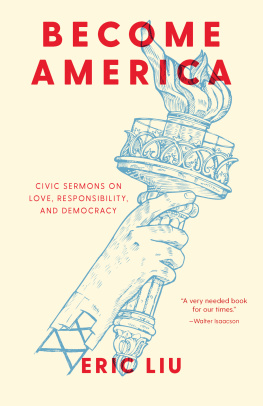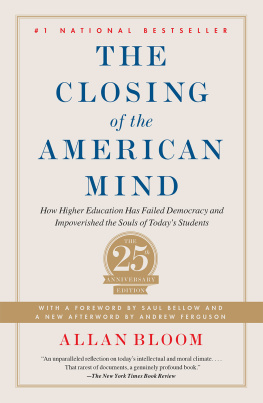Flescher - The organ shortage crisis in America incentives, civic duty, and closing the gap
Here you can read online Flescher - The organ shortage crisis in America incentives, civic duty, and closing the gap full text of the book (entire story) in english for free. Download pdf and epub, get meaning, cover and reviews about this ebook. City: Washington, year: 2018;2018, publisher: Georgetown University Press, genre: Romance novel. Description of the work, (preface) as well as reviews are available. Best literature library LitArk.com created for fans of good reading and offers a wide selection of genres:
Romance novel
Science fiction
Adventure
Detective
Science
History
Home and family
Prose
Art
Politics
Computer
Non-fiction
Religion
Business
Children
Humor
Choose a favorite category and find really read worthwhile books. Enjoy immersion in the world of imagination, feel the emotions of the characters or learn something new for yourself, make an fascinating discovery.

- Book:The organ shortage crisis in America incentives, civic duty, and closing the gap
- Author:
- Publisher:Georgetown University Press
- Genre:
- Year:2018;2018
- City:Washington
- Rating:5 / 5
- Favourites:Add to favourites
- Your mark:
- 100
- 1
- 2
- 3
- 4
- 5
The organ shortage crisis in America incentives, civic duty, and closing the gap: summary, description and annotation
We offer to read an annotation, description, summary or preface (depends on what the author of the book "The organ shortage crisis in America incentives, civic duty, and closing the gap" wrote himself). If you haven't found the necessary information about the book — write in the comments, we will try to find it.
Flescher: author's other books
Who wrote The organ shortage crisis in America incentives, civic duty, and closing the gap? Find out the surname, the name of the author of the book and a list of all author's works by series.
The organ shortage crisis in America incentives, civic duty, and closing the gap — read online for free the complete book (whole text) full work
Below is the text of the book, divided by pages. System saving the place of the last page read, allows you to conveniently read the book "The organ shortage crisis in America incentives, civic duty, and closing the gap" online for free, without having to search again every time where you left off. Put a bookmark, and you can go to the page where you finished reading at any time.
Font size:
Interval:
Bookmark:
The Organ Shortage Crisis in America
CRISIS IN AMERICA
Incentives, Civic Duty,
and Closing the Gap
Andrew Michael Flescher

2018 Georgetown University Press. All rights reserved. No part of this book may be reproduced or utilized in any form or by any means, electronic or mechanical, including photocopying and recording, or by any information storage and retrieval system, without permission in writing from the publisher.
The publisher is not responsible for third-party websites or their content.
URL links were active at time of publication.
Library of Congress Cataloging-in-Publication Data
Names: Flescher, Andrew Michael, 1969- author.
Title: The organ shortage crisis in America : incentives, civic duty, and closing the gap / Andrew Michael Flescher.
Description: Washington, DC : Georgetown University Press, 2018. | Includes bibliographical references and index.
Identifiers: LCCN 2017025225 (print) | LCCN 2017026296 (ebook) | ISBN 9781626165441 (paperback) | ISBN 9781626165434 (hardcover) | ISBN 9781626165458 (ebook)
Subjects: LCSH: Donation of organs, tissues, etc.United States. | Donation of organs, tissues, etc.Moral and ethical aspects.
Classification: LCC RD129.5 (ebook) | LCC RD129.5 .F58 2018 (print) | DDC 362.17/830973dc23
LC record available at https://lccn.loc.gov/2017025225
 This book is printed on acid-free paper meeting the requirements of the American National Standard for Permanence in Paper for Printed Library Materials.
This book is printed on acid-free paper meeting the requirements of the American National Standard for Permanence in Paper for Printed Library Materials.
19 189 8 7 6 5 4 3 2 First printing
Printed in the United States of America
Cover design by Martyn Schmoll. Cover image by Shutterstock.
For seven years I have served as the medical ethicist on our hospitals Organ Donor Council, the last three of which as a living donor advocate. A living donor advocate, the presence of which is required by federal regulation whenever a transplant occurs, certifies that every individual poised to donate an organ understands what is about to take place, is aware of the risks involved, has given full and informed consent, knows what the next weeks and months of life will look like and how to take care of himself or herself after surgery, and is aware of the medical centers grievance process should concerns arise at any point in the process. As the first point of contact for living donors, the living donor advocate serves as an unconditional and independent resource. In the time I have spent protecting the interests and health of donors, they have, in turn, taught me something about what it means to be a courageous and flourishing human being. It is our job to look out for them; it is their self-assigned calling to look out for a dying family member, friend, or stranger.
Giving a part of ones body to another who is in desperate straits is never in the medical interests of the donor. Yet, in talking to donors I have been given the near-singular impression that donating an organ is a fulfilling and inspirational activity. Donors consistently describe the decision as a no-brainer and one to which they refer with an unwavering buoyancy and determination. Increasingly I have come to wonder what informs such confidence and, more pointedly, why, given this confidence, there are not more donors. This book is the fruit of an investigation into answering this question, an inquiry I might not have undertaken if ten years earlier I hadnt spent hours with my uncle during a few of his visits to the facility in Toronto where he received dialysis. I owe my uncle for helping me understand and sympathize with someone in kidney failure who lives beholden to strictly scheduled dialysis appointments. These sessions define the limitations around which such an individual must organize and live the entirety of his or her life.
My exposure to this reality, which profoundly shaped my professional identity in the years after, is, therefore, in a sense an accident. This said, 10 percent of the population worldwide is affected by chronic kidney disease, and kidney disease remains the ninth leading cause of death in the United States. What makes these particular figures so interesting is that, unlike the numbers associated with other serious health ailments from which patients suffer and die, we have the medical technology at our disposal to be able to do something about kidney disease. How to recruit living donors in an ethical and efficient manner, however, remains a subject of vigorous debate, given both the large number of individuals on the waiting list and the new possibilities that contemporary technology has made available. I have spent the bulk of my career asking questions about what motivates human beings to act with compassion, and this work reflects the culmination of my moral, intellectual, and personal preoccupations.
I have been fortunate to think about and discuss these issues with brilliant and diverse colleagues at Stony Brook University and Stony Brook Hospital. I want to thank Steve Knapik, Carrie Lindower, David Harris, Amanda Fortuna, and Dawn Francisquini, among the many who have served with me on the Stony Brook Hospital Organ Donor Council, for making available to me the indispensably eye-opening experiences that made a project like this more than an abstraction. Steve Knapik, Stony Brook Hospitals living donor coordinator, in particular deserves my gratitude. He made sure the most interesting cases came across my desk and arranged to have me scrub in at Stony Brooks operating room in order to witness firsthand a laparoscopic nephrectomy, followed by a kidney transplantation in the adjacent operating room. Steve, along with Carrie Lindower, then the administrative director of Stony Brooks Kidney Transplant Program, secured me a prominent voice at the annual national conference for transplant professionals (NATCO). Without this clinical exposure to the transplantation process, and to the clinicians involved in the process, I would not have been able to write this book.
I thank my incredible colleagues in the Program in Public Health at Stony Brook University. At various stages of this project Lisa Benzscott, Sean Clouston, Norman Edelman, David Graham, Lauren Hale, Amy Hammock, Evonne Kaplan-Liss, Rachel Kidman, Jaymie Meliker, Catherine Messina, Tia Palermo, John Rizzo, Jamie Romeiser, Carrie Shandra, and Dylan Smith gave me the tools I needed to interpret the data, just as they pressed me to be as precise as possible in reporting it. As the lone humanist in the Program in Public Health, I am the beneficiary of their more-than-a-laymans methodological acumen in the sciences and social sciences, which was crucial at several junctures in this book. I am grateful to them and to the two graduate students with whom I have worked, Candace Stewart and Brooke Nepo, for the indispensable feedback they all gave me over the last three years.
Thanks also to the organizers and attendees of conferences at which I presented: the Lloyd Erskine Sandiford Center and the Queen Elizabeth Hospital in Barbados (in May 2012) and the NATCO in Louisville, Kentucky (July 2015) and Orlando, Florida (July 2016). Finally, I am grateful to Peter Singer and colleagues at the Center for Human Values at Princeton University, who invited me to present much of this work to the DeCamp Bioethics Seminar just before it was scheduled to go to press. In particular I am grateful for the last-minute feedback from Eric Gregory, Liz Harman, Anne Barnhill, and their graduate students for their analytic insights and for presenting a couple of interesting objections to my arguments I had not yet considered. This work was made possible by virtue of all of these individuals and because of a sabbatical awarded to me by Stony Brook Universitys School of Medicine.
Next pageFont size:
Interval:
Bookmark:
Similar books «The organ shortage crisis in America incentives, civic duty, and closing the gap»
Look at similar books to The organ shortage crisis in America incentives, civic duty, and closing the gap. We have selected literature similar in name and meaning in the hope of providing readers with more options to find new, interesting, not yet read works.
Discussion, reviews of the book The organ shortage crisis in America incentives, civic duty, and closing the gap and just readers' own opinions. Leave your comments, write what you think about the work, its meaning or the main characters. Specify what exactly you liked and what you didn't like, and why you think so.

